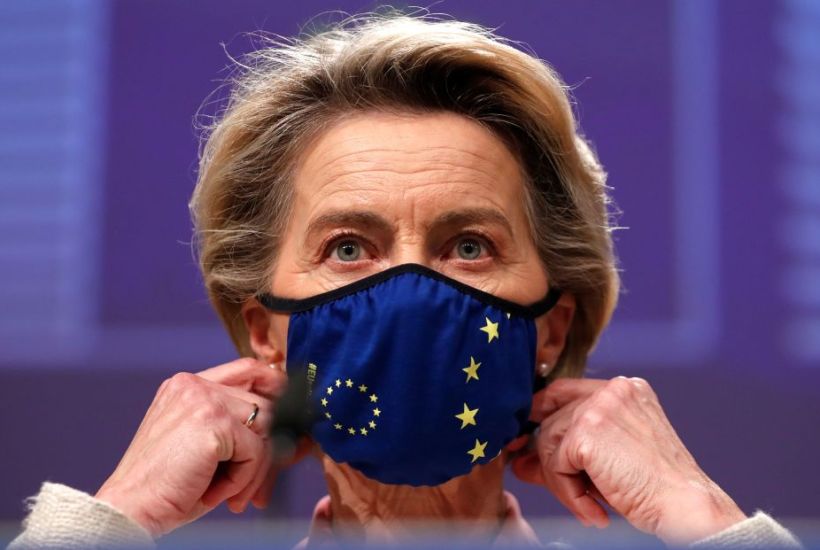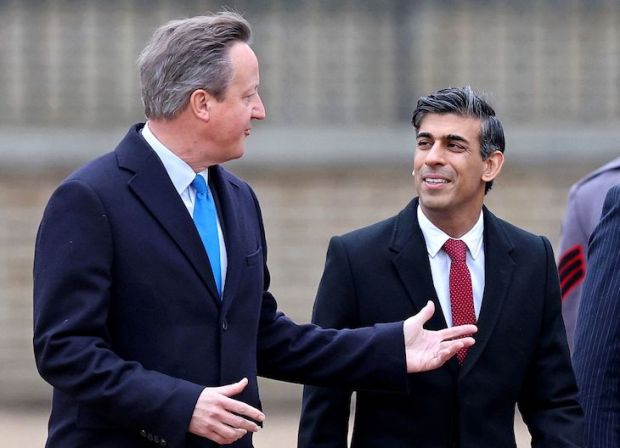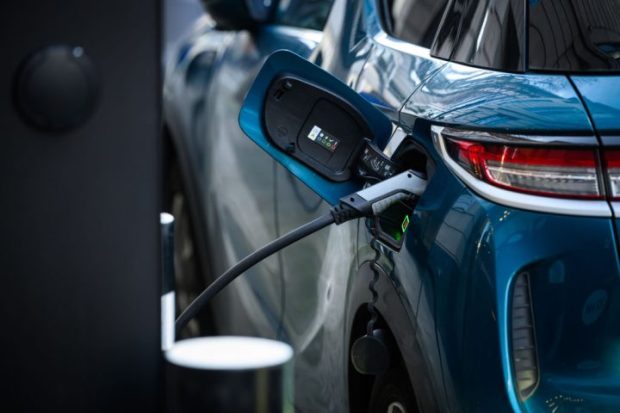What a joy it would be still to be in the EU. We could, for example, be part of the bloc’s Covid vaccine-buying programme. Or maybe not, to judge by the German experience.
There has been a lot of comment in Britain regarding the relative slowness of the European Medicines Agency (EMA) in approving the Pfizer vaccine – which led to the EU’s vaccine programme beginning two weeks after Britain’s. But that is a fairly minor issue. Far more concerning is the failure of the EU to buy enough vaccines to ensure that an effective inoculation programme can be completed before next winter. The reasons behind this failure are an object lesson in how the EU operates, and why we should be pleased to be organising our own vaccination strategy.
In June, the EU commenced a vaccine-buying programme which was supposed to ensure fair and equitable access for all 27 member states. It was hailed as an example of a benefit of membership of a large bloc – the EU could exercise its collective buying power while other countries, including Britain, would have to negotiate with much smaller buying power. In the early summer no-one knew which, if any, of the many vaccines under development would prove to be effective, and you couldn’t expect the EU to have backed all the right horses. But it is harder to forgive the lateness with which the EU commenced its vaccine-buying programme and how it was organised more around the needs of politics than around medicine. While the EU reserved some supplies of the Pfizer/BioNTech vaccine in the summer it didn’t place any firm orders until November, after the results of the third phase trials showed it to be effective. Moreover, it failed even then to order enough – in spite of the manufacturers offering far greater supplies.
The November order of the Pfizer vaccine was for 200 million doses, with an option for 100 million doses to be manufactured at a later date. This is not remotely enough to vaccinate the entire EU population. Under the rules of the EU’s vaccination programme, which allot supplies according to member states’ population, Germany will receive 45 million doses by mid 2021. To achieve effective herd immunity, calculates the German government, will require between 100 million and 120 million doses.
Yet there could have been enough to go round. The EU was offered a further 500 million doses of the Pfizer vaccine, yet as the German magazine Der Spiegel reports, this offered was rejected for purely political reasons. France, in particular, objected because it could see that the extra supplies of the Pfizer vaccine would undermine the rival vaccine being developed by French company Sanofi. Diplomatically, the EU had ordered 300 doses each of the Pfizer/BioNTech vaccine (partly developed in Germany) and the Sanofi vaccine.
Yet the Pfizer vaccine is ready for deployment now. The Sanofi vaccine, on the other hand, has yet to enter phase 3 trials and is unlikely to be approved much before the end of 2021, and it will take some time after that to roll it out through the remaining unvaccinated population. Result: EU countries face another winter without herd immunity to Covid 19.
As Der Spiegel remarks, the EU’s handling of vaccine purchases compares poorly with that of the supposedly chaotic Trump administration. The US is the big winner from the vaccine race. Development of the Pfizer vaccine began with Germany’s BioNTech, but it is US companies – Pfizer and Moderna – which have brought the two most promising vaccines to market, and using a novel technology, messenger RNA, which promises much for the future. Moreover, it is US citizens which look like being the first to receive enough vaccinations to achieve herd immunity.
As with so many industries and technologies, the US is the winner, and the EU the laggard. Britain lies somewhere in between.
Got something to add? Join the discussion and comment below.
Get 10 issues for just $10
Subscribe to The Spectator Australia today for the next 10 magazine issues, plus full online access, for just $10.





















Comments
Don't miss out
Join the conversation with other Spectator Australia readers. Subscribe to leave a comment.
SUBSCRIBEAlready a subscriber? Log in